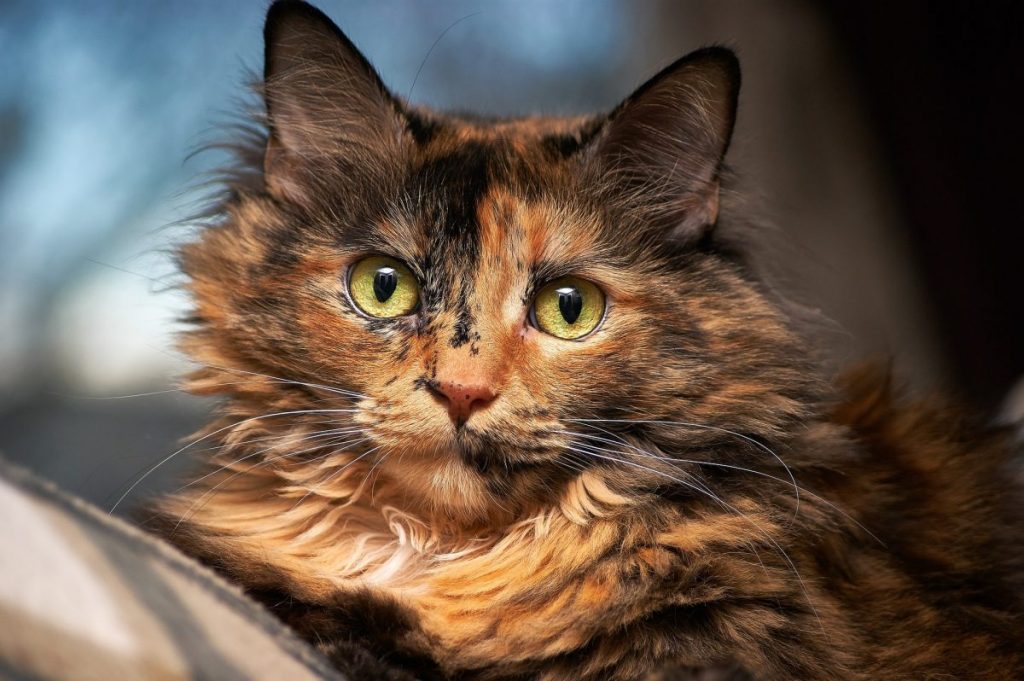There are few things scarier than cancer. In most cases, it happens without any visible cause. And scarier yet, cancer can take hold long before any symptoms reveal themselves. Pancreatic cancer is one of the deadliest forms of the disease for both humans and cats.
However, if the disease is detected early enough, the prognosis for recovery is good. If your cat has pancreatic cancer, it will be a trying time for you both. But not all is lost. The following information will help you learn about pancreatic cancer in cats, and what your options are for treatment should your cat develop the disease.
What is Pancreatic Cancer?
The pancreas is an organ that produces digestive enzymes and insulin in the body. It is critical for digestion and maintaining a healthy blood sugar level. The pancreas is a “V-shaped” organ located behind the cat’s stomach, and below the spleen. When malignant tumors, called Carcinomas, develop in the pancreas, cancer is present.
The particular type of Carcinoma in felines is called Adenocarcinoma, and is particularly malignant, and spreads quickly throughout the body, eating away at healthy cells and organs. Not all tumors on the pancreas are malignant, but many are.
Symptoms of Pancreatic Cancer in Cats
Pancreatic cancer takes hold before obvious symptoms reveal themselves, which makes diagnosing the disease early tough. Tumors grow quietly, as your cat shows no symptoms. You may notice, however, a combination of symptoms that seem like normal issues, but taken together could be a signal of pancreatic cancer – including fever, weakness, lethargy, weight loss, digestion issues, abdominal pain, and jaundice.
If your cat’s stomach is bloated and stretched out, even though he is not eating much, it could be a tell-tale sign of a tumor as well. Most of these symptoms are common results of other illnesses, so make sure to keep a close eye on whether they progress.
What Causes Pancreatic Cancer in Cats?
Pancreatic cancer in cats is considered “idiopathic” – which means the cause of the disease is largely unknown. But cancer is more common in older cats – and more common in certain cat breeds and family lines – suggesting that genetics play at least a small part in the incidence of cancer. It’s impossible to know if your cat is susceptible to pancreatic cancer, unless you have a detailed family history that shows cases of the disease.
How is Feline Pancreatic Cancer Diagnosed?
If you suspect your cat may have pancreatic cancer, schedule an immediate appointment with your vet. To diagnose the disease, your vet will begin with a physical exam to detect any pain, swelling, or lumps in your cat’s abdomen.
After the physical examination, a series of lab tests will be ordered to test blood profiles and blood counts. A urinalysis will also be ordered, as well as a lipase count – which is an enzyme released by the pancreas.
Your vet will also perform abdominal radiographs to determine if there are masses and tumors. Once a diagnosis is given, the next step is determining what treatment is appropriate.
Treatment Options for Pancreatic Cancer in Cats
Once your cat is diagnosed with pancreatic cancer, the immediate treatment is to surgically remove the tumor. If the tumor is in its early stages, your vet may be able to remove the cancerous cells entirely. However, malignant tumors grow quickly and there’s a good chance the cancer has spread to other parts of the body.
Other common cancer treatments, like radiation and chemotherapy, are ineffective for feline pancreatic cancer. If the cancer has spread throughout your cat’s body, the prognosis for survival is, unfortunately, not good.
Comfort Your Cat
When your cat is diagnosed with pancreatic cancer, the emotional impact can be overwhelming. But the best thing you can do for your cat is make sure he is comfortable and happy as he deals with this terrible disease. Do your best to stay strong, and work with your vet to determine the course of action that is best for your cat.
If the prognosis for survival is not good, do everything you can to make sure your cat’s suffering is minimal, and that he can find moments of enjoyment with you before he passes over.






